“Recovery through community-led approaches” – 8, 15, 22 & 29 April 2021
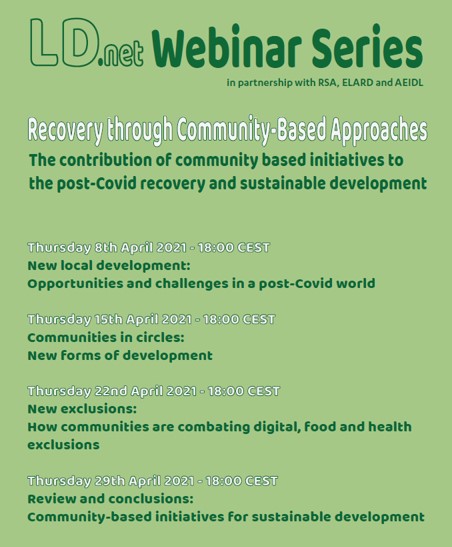 What can communities do to spur the recovery from Covid-19?
What can communities do to spur the recovery from Covid-19?
How can local action complement governmental and EU actions?
Is engaging local actors the way forward to a more sustainable future?
Following positive feedback from participants in LDnet’s 2020 series of webinars, LDnet organised a new series of four webinars in April 2021, in partnership with the RSA, ELARD and AEIDL, on “Recovery through community-led approaches” with a focus on community-based initiatives for sustainable development.
The webinars were streamed via Zoom and follow the, by now, well established format: through short late afternoon/early evening sessions relying on short/sharp presentations and lively contributions from participants and discussion, to look at how the lessons from local responses and the longer-term changes in the social and economic landscape are reshaping the CLLD-type approaches to local development and post-Covid recovery.
The full programme comprised 4 sessions, held on consecutive Thursdays at 18:00 CEST.
1. New opportunities and challenges for local development in a post-Covid world
Thursday 8 April, 18:00 – 19:00 CEST Webinar leader: Urszula Budzich-Tabor
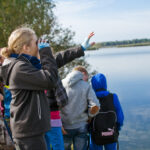 While it is too early to measure the full impact of the Covid-19 pandemic and the resulting restrictions, it seems clear that society and economies will be profoundly affected. Can local communities find sustainable solutions to loss of markets or incomes from tourism, increased precarity and sense of isolation of the most vulnerable groups, while capitalising on emerging opportunities such as increased demand for local food, remote working arrangements or urban-rural flight? Discussion around this question was illustrated with short case studies from rural, urban and fisheries areas.
While it is too early to measure the full impact of the Covid-19 pandemic and the resulting restrictions, it seems clear that society and economies will be profoundly affected. Can local communities find sustainable solutions to loss of markets or incomes from tourism, increased precarity and sense of isolation of the most vulnerable groups, while capitalising on emerging opportunities such as increased demand for local food, remote working arrangements or urban-rural flight? Discussion around this question was illustrated with short case studies from rural, urban and fisheries areas.
For the recording of the event and summary of main points click HERE.
2. Communities in circles: new forms of development
Thursday 15 April, 18:00 – 19:00 CEST Webinar leader: Maria João Filgueiras Rauch
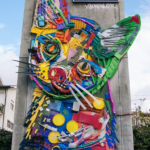 Interest in the circular economy was building up before the COVID-19 crisis and a variety of initiatives were taking place in urban, rural and fisheries areas. They are now called to play a much bigger role in local development in the post-COVID-19 recovery. This session looked at how local initiatives based on the circular economy are improving usage of resources by creating virtuous circuits in different fields.
Interest in the circular economy was building up before the COVID-19 crisis and a variety of initiatives were taking place in urban, rural and fisheries areas. They are now called to play a much bigger role in local development in the post-COVID-19 recovery. This session looked at how local initiatives based on the circular economy are improving usage of resources by creating virtuous circuits in different fields.
For the recording of the event and summary of main points click HERE.
3. New exclusions: How communities are combating digital, food and health exclusions
Thursday 22 April, 18:00 – 19:00 CEST Webinar leader: Peter Ramsden
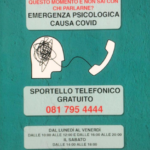 The economic and social problems caused by the Covid-19 pandemic have hit particularly hard some of the most vulnerable groups in urban and rural areas. This has manifested itself in new forms of poverty and exclusion. The session will explore how communities are responding by addressing specific forms of exclusion. Other contributions will focus on digital inclusion and issues around health. These responses were illustrated with short case studies from urban and rural areas.
The economic and social problems caused by the Covid-19 pandemic have hit particularly hard some of the most vulnerable groups in urban and rural areas. This has manifested itself in new forms of poverty and exclusion. The session will explore how communities are responding by addressing specific forms of exclusion. Other contributions will focus on digital inclusion and issues around health. These responses were illustrated with short case studies from urban and rural areas.
For the recording of the event and summary of main points click HERE.
4. Conclusions and lessons learnt
Thursday 29 April, 18:00 – 19:00 CEST Moderated by Peter Ramsden
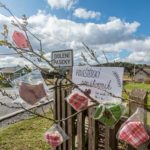 Participants in the previous webinars were invited to join this final session to discuss cross-cutting themes and draw lessons. Key questions included: how can community-based solutions be spread more effectively? How can communities work at transnational level to innovate without reinventing the wheel? What support is needed at local, national and EU level?
Participants in the previous webinars were invited to join this final session to discuss cross-cutting themes and draw lessons. Key questions included: how can community-based solutions be spread more effectively? How can communities work at transnational level to innovate without reinventing the wheel? What support is needed at local, national and EU level?
For the recording of the event and summary of main points click HERE.

Leave a Reply
You must be logged in to post a comment.